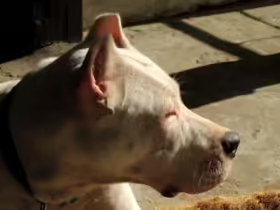The Havanese, often described as a charming and affectionate companion, is a small dog breed known for its playful nature and distinctive coat. Originally from Cuba, this breed has become popular worldwide due to its friendly demeanor and adaptability. This guide provides an in-depth look at the Havanese breed, covering their traits, training tips, and health care needs to ensure your furry friend thrives.
Traits of the Havanese
The Havanese is a small, sturdy breed with a variety of traits that make them an ideal pet for many families. Understanding these traits can help you better care for and appreciate this delightful breed.
Physical Traits:
- Size and Build:
- Height: Havanese typically stand between 9 to 11.5 inches (23-30 cm) at the shoulder. Their small size makes them well-suited for apartment living and smaller homes.
- Weight: They generally weigh between 7 to 13 pounds (3-6 kg). Despite their small stature, they are robust and muscular.
- Coat and Color:
- Coat: The Havanese has a long, silky coat that can be either straight or slightly wavy. Their coat is known for its luxurious texture and can be prone to tangling if not properly maintained.
- Color: Havanese come in a variety of colors, including white, black, sable, chocolate, and combinations of these shades. Their diverse coat colors add to their appeal.
- Distinctive Features:
- Head and Face: They have a well-proportioned head with a gentle expression. Their eyes are large, dark, and round, exuding warmth and curiosity.
- Ears: Their ears are set high and covered with long, flowing hair, which adds to their elegant appearance.
- Tail: The tail is carried high over the back and is covered with long, flowing hair that contributes to their overall graceful look.
Personality Traits:
- Affectionate and Loving: Havanese dogs are known for their affectionate nature. They enjoy being close to their family members and thrive on attention and companionship.
- Playful and Energetic: Despite their small size, Havanese are lively and playful. They enjoy interactive play and games that keep them engaged and entertained.
- Intelligent and Eager to Please: This breed is highly intelligent and quick to learn new commands and tricks. Their eagerness to please their owners makes training relatively straightforward.
- Friendly and Sociable: Havanese are generally friendly with children, other pets, and strangers. Their sociable nature makes them adaptable to various living situations and social environments.
Training the Havanese
Training is an essential aspect of raising a well-behaved Havanese. Their intelligence and eagerness to please make them receptive to training, but consistency and positive reinforcement are key.
Training Tips:
- Start Early: Begin training your Havanese as a puppy to instill good habits and behaviors. Early training helps set the foundation for a well-behaved adult dog.
- Positive Reinforcement: Use positive reinforcement techniques, such as treats, praise, and toys, to reward good behavior. Avoid harsh training methods as they can be counterproductive.
- Socialization: Expose your Havanese to various environments, people, and other animals to promote well-rounded social skills. Socialization helps prevent behavioral issues and enhances adaptability.
- Basic Commands: Focus on teaching basic commands such as sit, stay, come, and heel. These commands are essential for everyday interactions and help ensure safety.
- Consistency: Be consistent with training commands and routines. Consistency helps your Havanese understand expectations and reinforces learning.
Training Activities:
- Interactive Games: Engage your Havanese in interactive games that challenge their mind and body. Activities like hide-and-seek, puzzle toys, and agility training provide mental stimulation and physical exercise.
- Basic Obedience Classes: Enroll your Havanese in basic obedience classes to receive professional guidance and socialize with other dogs and owners.
Health Care for the Havanese
Maintaining the health of your Havanese involves regular veterinary care, proper nutrition, and attention to their specific needs. Understanding common health issues and preventive measures helps ensure your Havanese stays healthy and happy.
Common Health Issues:
- Dental Problems: Small breeds like the Havanese are prone to dental issues, including tartar buildup and gum disease. Regular dental care, including brushing and professional cleanings, is essential.
- Ear Infections: The Havanese’s long, floppy ears can be susceptible to infections. Regular ear inspections and cleaning help prevent issues.
- Eye Problems: Some Havanese may experience eye issues such as cataracts or dry eye. Regular veterinary check-ups can help monitor and manage these conditions.
- Hip Dysplasia: While less common in smaller breeds, hip dysplasia can still occur. Maintaining a healthy weight and providing appropriate exercise helps reduce the risk.
Preventive Health Care:
- Regular Vet Visits: Schedule regular veterinary check-ups to monitor your Havanese’s overall health, update vaccinations, and address any concerns.
- Balanced Diet: Feed a high-quality, balanced diet that supports your Havanese’s health and energy needs. Consult your vet for dietary recommendations based on their age, size, and activity level.
- Grooming: Regular grooming is essential to maintain the Havanese’s coat and overall health. Brush their coat several times a week to prevent tangles and mats, and schedule professional grooming as needed.
- Exercise: Provide regular exercise to keep your Havanese healthy and fit. Daily walks, playtime, and interactive activities help meet their exercise needs and prevent obesity.
- Parasite Prevention: Use flea and tick prevention treatments as recommended by your vet to protect your Havanese from parasites.
Training for Health:
- Weight Management: Monitor your Havanese’s weight and adjust their diet and exercise as needed to maintain a healthy weight. Obesity can lead to various health issues.
- Dental Care: Incorporate dental care into your Havanese’s routine to prevent dental problems. Use a dog-specific toothbrush and toothpaste for regular brushing.
Interesting Facts
- Cuban Origins: The Havanese is the national dog of Cuba and has a history that dates back to the 16th century. They were popular among Cuban aristocracy and were known for their charm and companionship.
- Hypoallergenic Coat: The Havanese is considered hypoallergenic due to its low-shedding coat, making them a suitable option for people with allergies.











Leave a Reply